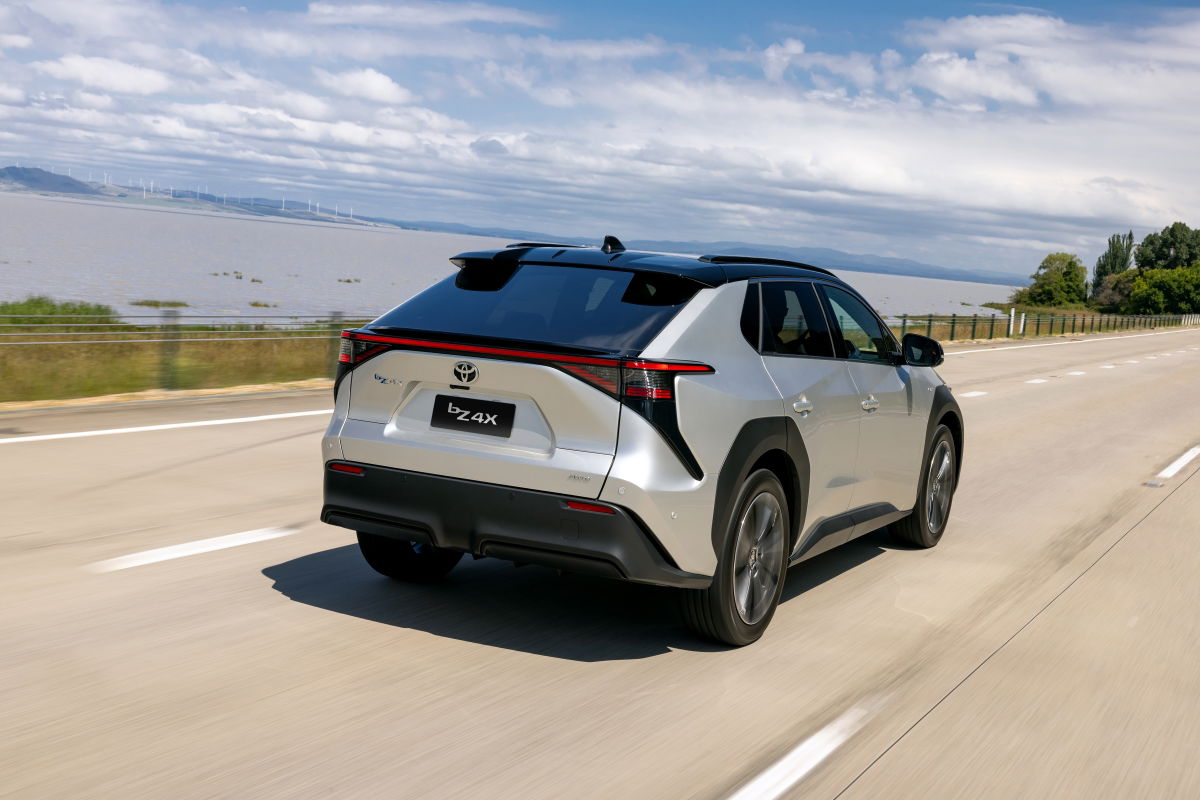The world’s largest carmaker has often been criticised for its slow rollout of EVs and its mediocre attempts at joining the market, with the Japanese giant instead backing its industry-leading hybrids to cut CO2 emissions on a wider scale.
In 2024, almost 40 per cent of the circa-10.1 million vehicles sold by Toyota and its luxury brand Lexus were hybrids, compared to EVs accounting for less than 1.5 per cent of its total.
While Toyota has more EVs in the global pipeline – with the bZ4X Touring and C-HR+ to follow its debut bZ4X – it still lags behind not only its traditional competition but also new rivals from China.

However, rather than go all-out to try and boost sales in regions where its EVs are struggling, Toyota Europe’s vice president of product strategy and marketing, Andrea Carlucci, told Automotive News Europe of the brand’s strategy to sell battery-powered models.
“I am hoping that we can establish Toyota’s BEVs in the markets where they are strong sellers, but we are not going to push BEVs in markets where there is no demand,” Carlucci said.
This may seem like a surprise to some, though Toyota has previously made clear its intention to be neutral when it comes to reducing emissions, investing in a wide range of potential solutions.
EVs are just one arm of this strategy, with hybrids, plug-in hybrids (PHEVs), and hydrogen fuel-cell vehicles (FCEVs) among its current lineup of emissions-reducing powertrains.

On top of this, Toyota has also invested greatly in the development of traditional internal combustion engines which can run on hydrogen rather than fossil fuels.
In June, Toyota chairman Akio Toyoda – grandson of Toyota Motors founder Kiichiro Toyoda – claimed the brand’s hybrids have done more to cut emissions than EVs.
“When the term carbon neutrality became popular, we said as a company the enemy is carbon,” Toyoda said in an interview published via the in-house magazine, Toyota Times.
“We have to focus on what we can do immediately to reduce carbon dioxide. That is the basis of our decision. It has not changed and will not change.
“We have sold some 27 million hybrids. Those hybrids have had the same impact as 9 million BEVs on the road.
“But if we were to have made 9 million BEVs in Japan, it would have actually increased the carbon emissions, not reduced them. That is because Japan relies on the thermal power plants for electricity.
“We should look at all options and work in all directions. As a company, we have been very consistent in saying what we’re fighting against is carbon dioxide.”












Discussion about this post